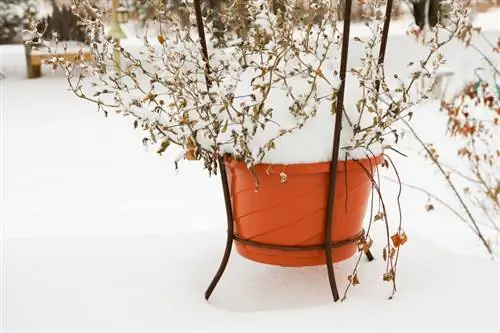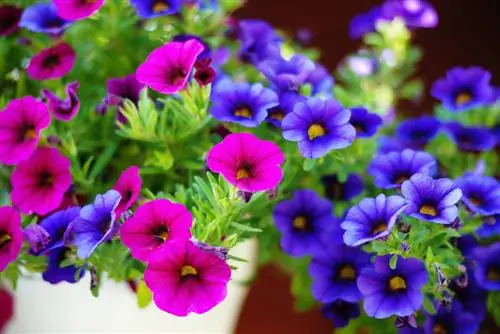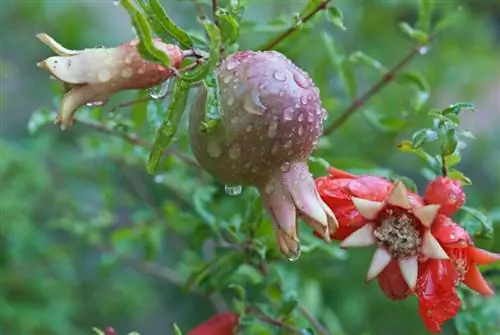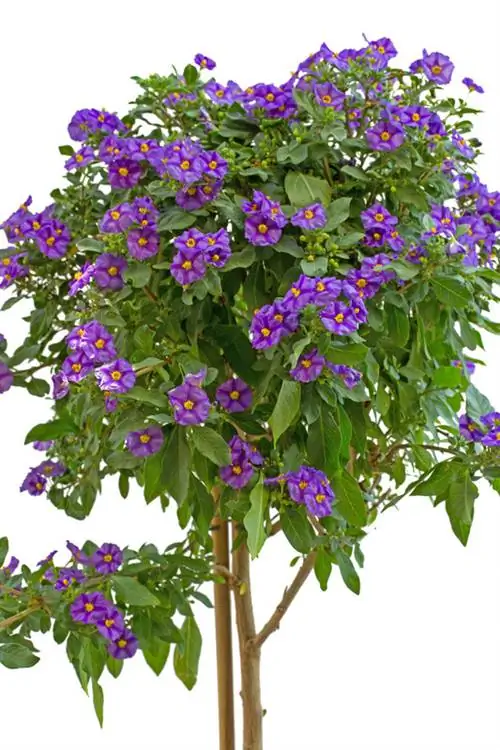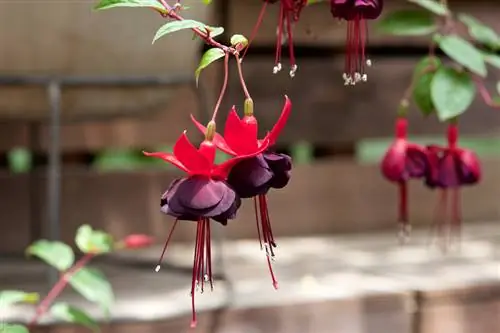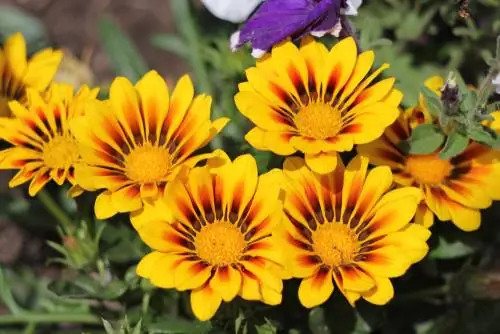- Author admin leonars@hobbygardeners.com.
- Public 2023-12-16 16:46.
- Last modified 2025-01-23 11:20.
The lush and long-flowering petunias originally come from South America, which is why they prefer sunny locations. Without protection, these plants are not hardy in this country, but they can sometimes be overwintered.
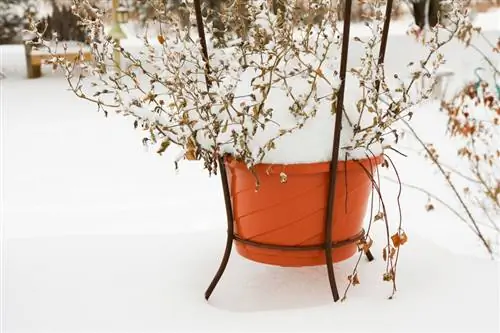
Do petunias tolerate frost?
Petunias are sensitive to frost and usually do not survive periods of frost. To protect them, they should only be planted outdoors after the Ice Saints. They can overwinter in a cool, bright room at 5-10°C and reduced watering.
Do not plant young plants outdoors too early
Since most petunia varieties do not survive even short periods of frost unscathed, young plants purchased commercially or grown on the windowsill should not be planted outdoors before the ice saints and the last night frosts. In addition, petunias grown indoors should first be acclimated to direct sunlight for a few hours before they are planted in the sunniest location possible.
Overwintering petunias
Due to their extreme sensitivity to frost, it is not possible for petunias to overwinter outdoors, even in the mild wine-growing climate. Since petunias are comparatively cheap and can be easily grown from seeds, the effort involved in overwintering them is comparatively disproportionate. However, you can overwinter the plants under the following conditions, for example if you want to start the balcony season with particularly strong hanging petunias:
- at 5 to 10 degrees Celsius temperature
- as bright as possible
- no fertilization in winter quarters
- Shoots shortened to about 15 to 20 centimeters long
- poured sparingly
Remove flowers in winter quarters
If flower buds form on the shortened shoots of the petunias during the winter, you should remove them as regularly as possible. This protects the energy balance of the plants and increases the chances of successful overwintering.
Tip
If the frost-sensitive petunias are to be overwintered in a cool and bright room, you not only have to pay close attention to the right conditions in terms of amount of water, brightness and temperature. You should also check the plants for any signs of disease or infestation with pests such as aphids when they are winterized in autumn, well before the first night frost. These must be removed or combated immediately so that the entire plant is not infested over the winter.

